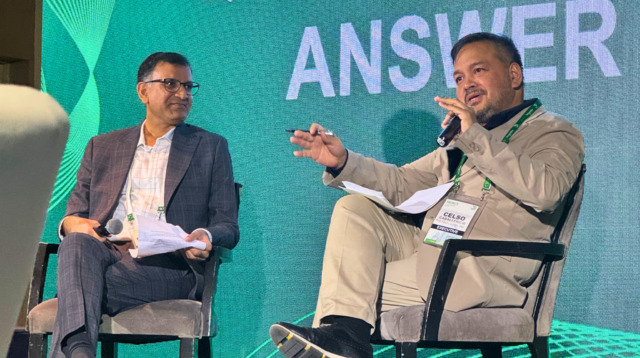
MANILA – The Transition Business Group (TBG) of Aboitiz Power Corp. (AboitizPower) announced a strategic initiative to expand the application of artificial intelligence (AI) and data analytics to its coal-fired power plants in Luzon and Visayas.
The move continues AboitizPower’s “Project Arkanghel”, which modernizes the company’s existing conventional power plants into smart ones, helping ensure plant availability and reliability. Full implementation of the project will be rolled out in phases.
“The first phase of Project Arkanghel is up and running, currently in one of our circulating fluidized bed plants in Mindanao,” said AboitizPower TBG president and COO Celso Caballero III, referring to the 300-megawatt Therma South, Inc. in Davao City.
“We’re completing implementation in the Visayas this year and moving to Luzon next year,” he added, making the announcement during Schneider Electric’s Innovation Day celebration.
To recall, the 340-megawatt Therma Visayas, Inc. in Toledo City, Cebu was also named as one of the pioneer models for Project Arkanghel, while a site for Luzon has yet to be identified.
Project Arkanghel features establishing a Unified Operations Center, equipped with digital twin technologies, early warning and anomaly detection systems, and an “end-to-end” complete integration live asset health monitoring system. This Center enables engineers to anticipate potential issues and optimize plant operations.
AI-based systems have the potential to help maximize the efficiency of plants, which means lower heat rates, better fuel efficiency, reduced outage days and longer intervals between planned outages. With its data-driven intelligence, these systems enable engineers to do bolder and more accurate decision-making.
In developing Project Arkanghel, AboitizPower partnered with Thailand-based company REPCO NEX Industrial Solutions. The project also utilizes AVEVA Predictive Analytics, a Schneider Electric solution, to analyze historical data, recognize patterns, and provide early warning detection.
In the same event, Caballero cited the unique challenges faced by the Philippine energy sector, including rapidly growing energy demand, vulnerability to approximately 20 typhoons annually, and the persistent need for affordable power. The integration of AI and data analytics into its baseload power plant operations intends to help address these challenges.
“Power demand growth aside, if your plants are more available, you will be able to build fewer plants in order to cover for shortages,” Caballero explained.
The expansion of Project Arkanghel to AboitizPower’s coal plants in Luzon and Visayas is a pragmatic step in the company’s balanced energy mix strategy. It acknowledges the immediate need for stable, dependable and cost-effective baseload power while renewable energy capacities continue to grow.
In step with the country’s ambitions for its energy mix, AboitizPower aims to grow its portfolio of generation assets with renewables and selected baseload builds.
The company seeks to increase its renewable energy portfolio from indigenous energy sources such as solar, hydro, geothermal, and wind. To date, AboitizPower, together with its partners, offers the largest renewable energy portfolio in the Philippines based on installed capacity under its operational control. Press release




